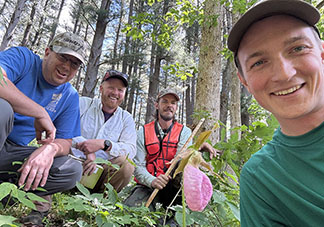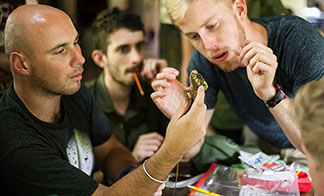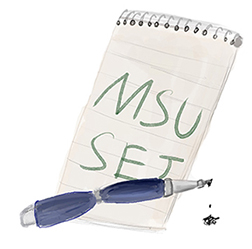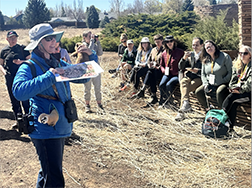Knight Center director Eric Freedman and Knight Center doctoral student and research assistant Iasmim Amiden dos Santos presented two papers on environmental journalism in Latin America at the 2025 Association for Education in Journalism and Mass Communication (AEJMC) conference, held August 7-10 in San Francisco, California.
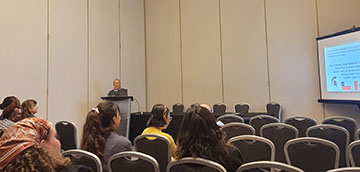
Eric Freedman presenting at AEJMC
Freedman presented a case study of three Knight Center training programs for professional journalists and students in Bolivia, Chile and Peru. The programs were designed to strengthen skills, expand networks and build knowledge of environmental science and policy, while adapting to each country’s social, political and environmental context.
Freedman also addressed the challenges of conducting training during the COVID-19 pandemic, when the Peru program shifted to a virtual format. Despite those hurdles, Freedman stressed the benefits of these initiatives in improving accuracy, ethics and fairness in reporting – especially in contexts with limited funding for investigative work, restrictions on press freedom and physical or legal threats that undermine journalists’ ability to cover environmental degradation and related social conflicts. Continue reading

